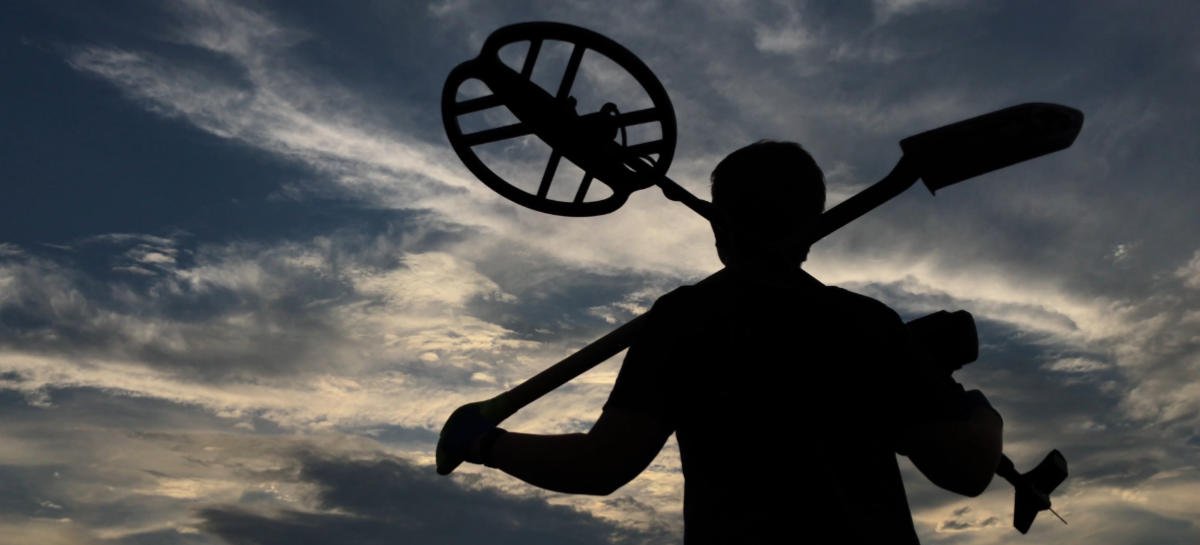
Fancy a New Hobby – How About Metal Detecting?

Metal detecting can be one of the most rewarding outdoor hobbies available.
Image Credit: Van Den/Shutterstock
As a hobby metal detecting has grown massively in popularity over the years and much of the appeal lies in the fun and adventure of digging for hidden treasure. It’s also the perfect hobby for anyone who loves the great outdoors and especially anyone who fancies trying their hand at Archaeology. Not only that, but there’s also the possibility of finding valuable objects likes watches, necklaces, and rings.
Yes, believe it or not, you could strike it rich with metal detecting.
In 2008 a treasure hunter found a 385-year-old golden chalice that sunk with a Spanish frigate and was given a million-dollar reward for his troubles. And in 1989 another treasure hunter found a golden nugget in the Mexican dessert which weighed more than 389 ounces and was later auctioned off for over a million dollars.
Metal detecting as well as being good exercise is about the thrill of the hunt. Knowing that at any moment you could find something weird, valuable, or curious. You won’t believe what people have found from Rolex watches to ancient Roman coins. Anyway read on and see how you can get into the weird and wonderful world of this hobby.
Getting Started
What’s also great about metal detecting is that it’s not an expensive hobby to get into. Modern metal detectors are affordable and no matter what your reason for wanting to start the following guide will get you started.
First Things First.
Before you can start you’ll need a detector and there are literally dozens of makes on the market, and like with everything, some are better than others. They range from very cheap to very expensive, but a serviceable starter model will set you back no more than a couple of hundred dollars or the equivalent in your local currency. Our advice is that if you’re a beginner, don’t spend a lot of money (after all, you might lose interest) and you can usually sell your starter one and recoup some of the outlay if you decide to upgrade.
The following points are worth considering before you open your wallet:
- Buy a less expensive model first and learn how to use it before moving on to a more expensive model. (Note that your detector could end up paying for itself, which will enable you to move onto a fancier version.)
- There is not a huge difference in features between a cheaper and more expensive model. The only real difference tends to be build quality and reliability, and the fact that the cheap one will tell you where there’s metal, while the more expensive models will give you details about what it’s found – which will save you digging up old tin cans an the like.
- Expect to spend at least $150 on a starter model, while mid-range models sell for about $400 and upwards.
- You can also find second-hand detectors on the internet or on ebay.
What else will you need?
Other equipment you might useful includes extra batteries, a scuff cover which protects the head of the machine, headphones which will allow you to hear signals better and a spade to dig up anything you find. Try to get a spade with a serrated edge, which you can use to cut roots. Alternatively, a trench knife which will also come in useful. You will also need suitable outdoor clothing and footwear.
Motion or Non Motion
A key term you will hear when considering detectors is what they call “motion and non-motion” machines. They both do the same job but in slightly different ways:
Metal Detectors all work with radio waves, however, Non-Motion detectors have to be tuned in – think tuning a radio to the right channel. The other difference is that this detector gives a faint hum as you pass it over the ground, and this changes when it detects metal. It continues humming even when not moving, which some might find annoying.
On the other hand, motion detectors are automatically tuned and stay silent while scanning. They beep as you pass them over an object, but only do so when the head is moving. The signal stops when the head stops moving. Therefore motion is needed to locate the metal. This type of detector is recommended for beginners as it is easier to use.
More expensive models of either type will have a calibration unit which will give you an indication of the likelihood of what its discovered being worth digging up. This is usually on a scale of 0-99 and a nice trick is to place a coin or gold item on the ground and see what reading it gives. This way you can avoid digging up ring pulls and bottle tops.
How deep can you go?
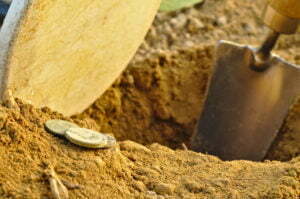
Most discoveries are within a foot of the surface.
Image; AngeloDeVal/Shutterstock.com
There are dozens of factors that determine the depth at which objects can be found. The first is the size of the object. Heavier objects, “Sink” into the ground over time and will, therefore, be deeper. The second has to do with how the object is lying in the ground. Flat objects will be deeper while those on their sides will be closer to the surface.
A further consideration is the condition of the substrate. This refers to the moisture in the soil and mineralization, both of which affect the machine’s ability to penetrate. Soil that is dry and contains a lot of minerals reduces penetration. A half-decent model should be able to detect objects in the 6″ to a foot range (15-30 Cms)
So where is the best place to go metal detecting?
It all depends on what you’re after.
Do you want valuables or buried treasure? If it’s valuables you want like left behind watches, stick to the beach. For treasure, a good place to start is the library or internet – no don’t start digging the floor up, you basically want to go through historical records. Look for places where they may be ancient structures or settlements. Also, look through old newspapers for clues – places where fairs or carnivals were held etc. If your town has a historical society it’s members could come in useful.
If possible try and make friends with a landowner as there is a fair chance that on private land you could be the first person to mine it so to speak so could find something interesting. It is worth getting something in writing here as the landowner will be entitled to a share in anything you find. You would also be wise to invest in public liability insurance too as if your treasure hunting causes any damage or loss to the person whose land you’re searching on then you would be legally liable for damages. In the UK The National Council for Metal Detectors provides insurance as part of its membership and currently (2019) this only costs £8 per year. Well worth investing in.
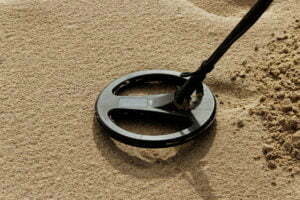
The beach is a good place to start – usually free and easy to dig in.
Image: Ratikova/Shutterstock.com
What is the legalities of metal detecting?
In most countries, you won’t need a permit, but in America, you’re not allowed to detect in National Parks. Doing so is a crime and can have serious penalties. So try to stick to public places.
In the UK you need permission from the landowner if it is privately owned, and if it is Crown Estate Land (such as beaches) you may need permission or if in London a permit for the Thames Estuary. The current position can be found here. If you are lucky enough to find something significant then you will need to consider the Treasure Act 1996 which lays out the legalities.
Overall as long as you behave you shouldn’t run into trouble. This means, don’t make a nuisance of yourself, fill in any holes you dig and try to leave everything the way you found it. Also if you find junk like rusty nails and tin cans, take them with you and dispose of them correctly (metal is recyclable). The Portable Antiques Scheme has a useful code of practice listed here.
What should you do if you find something valuable?
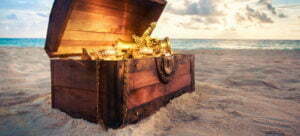
You Never Know!
Image: Fer Gregory/Shutterstock.com
It really depends on what you have found.
If it’s a few modern coins that have been dropped or a low-value piece of modern jewelry then nothing needs reporting. However, if you make a major discovery then you will need to consult with the local regulations.
In the UK The above-mentioned Treasure Act requires you to report it to the Coroners’ office within 14 days. Failure to do so could have serious repercussions.
In the USA you will need to consider both State & Federal Law with the latter being governed by the Archaeological Resources Protection Act of 1979.
For minor items of historical rather than serious monetary value, you can keep it for your own personal collection. If you’ve started metal detecting because you enjoy history then you’re probably going to want to do it.
Otherwise, if you want to sell the object, then don’t clean it. Doing so will greatly lower its value. This is especially true for coins. Collectors want them in their original condition as cleaning can damage the coin and leave marks on its surface.
Anyway hopefully this will have whet your appetite, however, if this doesn’t sound like your “cup of tea” then please have a browse through our other hobby ideas.


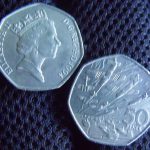


[…] has lots of other local history too, of course, but Viking finds are always impressive. We imagine metal detecting in this area might be […]
[…] for treasure in the UK. Why not try hunting for rocks and crystals, or buying a metal detector and searching for buried gold? Everything is possible when you have Five Minutes […]